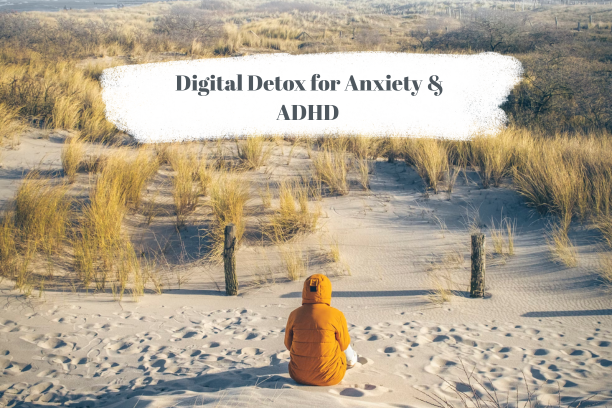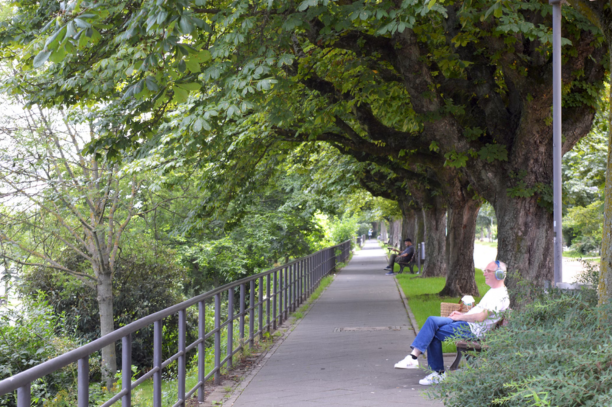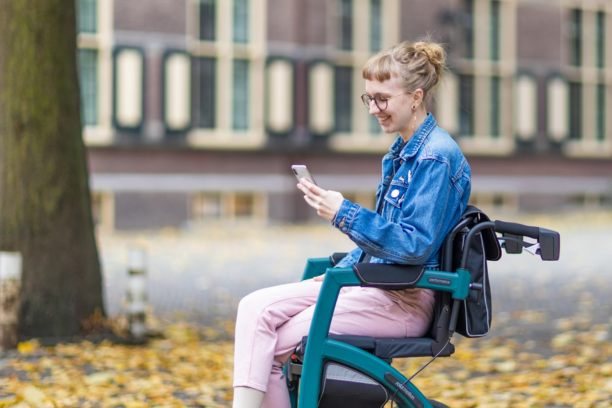Why Mental Health Needs a Tech Timeout
In 2025, people in the UK, USA, and Canada are more digitally connected than ever. But with this constant connectivity comes a surge in mental health issues, especially anxiety and ADHD. Rising screen time, social media pressure, and overstimulation have left many feeling burned out, unfocused, and emotionally drained.
Enter the digital detox 2025. More than just a trend, it’s a proven strategy to reduce tech-induced stress and reclaim mental clarity. Whether you struggle with anxiety, ADHD, or both, unplugging could be the reset your brain desperately needs.
Understanding the ADHD-Anxiety-Tech Connection
ADHD, Anxiety, and the Overstimulated Brain
People with digital detox for ADHD and anxiety often have brains wired for high sensitivity to stimulation.
The endless pings from smartphones, alerts, and fast-paced media bombard the mind, therefore worsening symptoms like restlessness, impulsivity, and emotional reactivity.
For ADHD, the dopamine-driven desire for novelty means scrolling and switching between apps becomes addictive. Meanwhile, for anxiety sufferers, constant exposure to stressful news and social comparison can trigger spirals of worry and overthinking.

Screen Time and Its Impact on Mental Health
Research shows that excessive screen time can lead to poor sleep, decreased attention span, and elevated stress levels. Social media, in particular, promotes a dopamine reward loop that mimics addiction.
When you combine this with ADHD’s executive dysfunction and anxiety’s overactive threat response, it becomes clear that tech overload is a major mental health risk.
What Is a Digital Detox and Why It Works
An ADHD digital detox involves intentionally reducing or eliminating non-essential digital activities for a set time. Unlike a complete tech fast, a detox may include mindful use of necessary tools (like email or work apps), while cutting out distractions (like social media or games).
The purpose? To reset the brain’s dopamine balance, reduce overstimulation, and improve emotional and cognitive regulation.
Key Benefits of Detox:
- Improved sleep and focus
- Reduced anxiety triggers
- Enhanced real-life engagement
- Greater emotional stability in ADHD brains
How Digital Detox Helps ADHD and Anxiety | Science-Backed Benefits
Emotional Regulation and Cognitive Clarity
Digital detox gives the overstimulated brain space to process emotions. For example, a study by the University of Bath found that participants who took a one-week break from social media reported significant drops in anxiety and depression.
For ADHD brains, removing digital distractions helps reduce impulsive behaviours and emotional dysregulation. Consequently, less screen time equals more cognitive space for reflection, planning, and calm.
Reduced Overstimulation and Improved Focus
“Unplugging helps normalize dopamine sensitivity. Specifically, ADHD users, who often chase stimulation, can retrain their focus through offline activities. As a result, the brain begins to reward slower, sustained attention something fast-paced apps typically discourage.”
Meanwhile, anxiety sufferers experience fewer mental triggers and more present-moment awareness, especially when the detox is paired with grounding practices like journaling or nature walks.
A Step-by-Step Detox Plan for Anxiety and ADHD Relief
1: Prep & Awareness (Days 1-2)
- Track your current screen time and mental health using apps like Rescue Time or Screen Time (iOS)
- Identify your top tech stressors: Is it social media? News apps? Messaging fatigue?
2: Partial Detox (Days 3-5)
- Limit screen time to essential tasks (work, navigation, communication)
- Replace scrolling with analog activities: reading, art, or light exercise
- Use app blockers like Freedom or One Sec to create boundaries
3: Deep Detox (Days 6-7+)
- Go phone-free for several hours daily (start with 3, aim for 8+)
- Spend extended time in low-stimulation environments: nature, quiet cafes, meditation spaces
- Reflect daily on mood, anxiety levels, and focus using a journal

Top Tools and Apps for a Successful Detox
Apps That Help You Unplug:
- Freedom: Block distracting apps and websites
- Forest: Grow virtual trees by staying off your phone
- One Sec: Interrupts impulsive app openings with a breathing pause
Offline Alternatives:
- Mindfulness Mindful tech use for ADHD and anxiety and CBT journals (paper-based)
- Adult colouring books (great for ADHD)
- Guided walks or local meetups without phones
Real-Life Story | Digital Detox Turned My ADHD Around
Jenna, a 27-year-old marketing assistant in Toronto, struggled with ADHD-induced burnout. After trying a 7-day digital detox, her focus and mood drastically improved.
“I never realized how much social media was hijacking my brain. Taking time off helped me sleep better, finish work faster, and even enjoy quiet moments again.”
Her story mirrors thousands globally who are now discovering that a tech break is often the best form of mental reset.
Must read 2025 Digital Detox Challenge | Reclaim Focus in 7 Days
Long-Term Tips for Tech-Life Balance
Even after a detox, maintaining healthy habits is key. Here’s how:
Daily Tips:
- Use the 80/20 rule: 80% productive screen time, 20% entertainment
- Set “no-phone zones”—like bedrooms or dinner tables
- Schedule regular offline hours into your routine
Weekly Habits:
- One screen-free evening a week
- Outdoor time with no devices
- Digital-free Sunday mornings for reflection
When to Seek Professional Support
If anxiety or ADHD symptoms persist despite lifestyle changes, consult a licensed therapist or coach. Online therapy platforms like BetterHelp (USA/Canada) and My Online Therapy (UK) offer support tailored to digital burnout and neurodivergence.
Conclusion: Reclaiming Calm in the Age of Distraction
A digital detox isn’t about rejecting technology—it’s about redefining our relationship with it. For those living with anxiety and ADHD, stepping back from screens can unlock mental clarity, improve emotional balance, and bring peace back to daily life.
Try a mini detox challenge this week—and rediscover what your brain can do without the noise.
FAQs
How does a digital detox help with ADHD and anxiety symptoms?
A digital detox reduces overstimulation, resets dopamine balance, and improves focus and emotional regulation—crucial for managing both ADHD and anxiety. Research shows that even short breaks from screens can significantly reduce stress and improve attention spans.
How long should a digital detox last for it to be effective?
Even a 3-7 day detox can improve mental clarity, sleep, and mood. For ADHD and anxiety, starting with a few hours daily and gradually extending unplugged time provides the best results without overwhelming the user.
What are the best digital detox apps for ADHD and anxiety?
Top-rated apps include Freedom (blocks distractions), Forest (rewards focus), and One Sec (adds mindfulness pauses). These tools are especially effective for users with ADHD who struggle with impulsive screen use.




